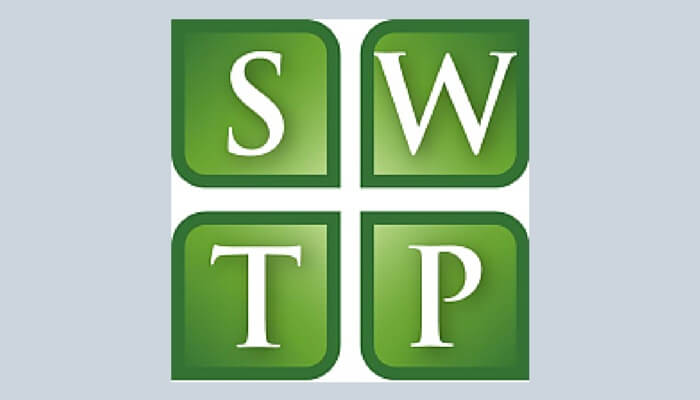Are you thinking about taking a course to help you prepare for the social work licensure exam? Have you wondered how SWTP differs from all the other courses out there?
To find out how SWTP differs from other social work licensure exam prep courses, as well as provide you with some helpful studying tips, Social Work Career [Development] reached out to Will at SWTP.
Social Work Test Prep is one of a number of online firms that can provide you with assistance in exam preparation for the social work licensing exam.
In addition to giving you access to various online study materials, SWTP enables you to practice taking tests that are designed to replicate both the timing of real exams and the broad range of content required by the social work licensing boards.
So without further ado, Will, how did Social Work Test Prep come about?
SWTP is an unexpected career development story. I was working in community mental health, preparing for the licensing exam in whatever free time I could find. Subscribing to exam company offerings seemed wildly expensive, especially since there was so much free information on the web.
I started blogging about resources, links to free practice, doing blog posts instead of flashcards. In not too much time, it was a big, useful site for exam-prepping social workers. That was 2008. The site continued going strong, and soon it was time to offer real resources for social workers–affordable licensing exam practice, by social workers, for social workers. And that’s what happened.
The site still has everything initially offered–links to outside resources, tutoring, study groups, etc. But now we’ve got a growing number of reasonably-priced practice exams to help people prepare for what can be a gruelling four-hour sit. (Exams cost as little as $29 when purchased in a bundle.) And it’s helping. People are passing without going broke!
How is SWTP different from other test preparation courses?
The big extra feature SWTP offers is that each practice question is accompanied not only by a detailed rationale, but by a link for suggested study. The suggested study links take you straight to pages explaining the topic of the question.
If you’re struggling with a question, just click, and there’s your information. No more giant, expensive volumes to be overwhelmed by as you search for relevant info. SWTP harnesses the web to help make exam preparation easier, faster, and maybe even a little more fun.
What is the rate of success amongst your participants? (74.5% of those who take the LMSW exam nationally pass on their first try; however, 90% of those who take the National Association of Social Workers’ (NASW) course pass the exam on their first try.)
I’m not sure how other companies track success rates. We don’t advertise a number. You’ve taken stats–how do you get a fair sample? If you query all site users and get a wave of replies just from people who passed, does that mean your pass rate is 100%? If so, that’s us.
We regularly hear from happy, newly licensed social workers grateful for SWTP’s help. Our testimonials page collects a bunch of them (we’re backlogged with others to post!). Our success rate seems to be really, really high. It makes sense that the site helps a lot. Practice exams are good studying. There’s real research out there backing that up!
Do your online exams prepare social workers for both the LMSW and the LCSW exams?
Current SWTP exams are based the clinical exam outline. LCSW and LMSW preppers both use SWTP all the time and report great results.
Has it been your experience that non-U.S. born social workers tend to have a harder time passing the LMSW exam? What special advice that you would offer them?
People for whom English is a second language generally face an extra hurdle when aiming to pass any English-language standardized test. Licensing exams are even trickier, given all the professional lingo.
Social work exam writers are directed to keep ESL applicants in mind when developing exam items; they try to avoid overly obscure or colloquial language. But the sheer amount of reading when it comes to long vignette questions can overwhelm just about anyone.
So, for everyone, the advice is the same: take is slow, reread if necessary, use your common sense. Choose an answer even if you’re guessing, but also mark questions if you’re at all unclear about what they’re really getting at. Come back to them later. The correct answer can often pop out at you the second time through. Check out SWTP’s study tips page for more help and ideas.
What advice would you give to social workers who have taken the exam but failed it despite studying and taking a prep course?
First, don’t take it personally. The exam doesn’t really measure your ability as a social worker; it measures your ability to pass this specific exam.
When you’re ready to start studying again, see if you can assess what went wrong. Was it too little prep? Too much? Did anxiety get the better of you? Did you run out of steam midway as you were taking the exam?
Practicing in real time, with full-length practice tests can help you figure out where you hit trouble. Need an outside view? Clients turn to social workers. Exam preppers turn to tutors.
Just talking through your experience, especially any resentment you have about the licensing process, can be enormously helpful. Lots of people pass the exam every year. Lots of them on a third or fourth try. You’re next!
In July of 2015, the licensure exam is expected to include the DSM-5. What are your plans to adapt your materials to address this change?
So much work! We’ve gotten underway on going through all diagnosis-related questions on the exam and updating them to DSM-5. It’s a big undertaking, so we’re getting started early. We’ll also likely put up a DSM-5 training exam–a quick, inexpensive way to learn the big purple book. Stay tuned.
Looking ahead five years from now, what changes are you anticipating in the way social workers get licensed and/or the licensing exam itself (other than the inclusion of the DSM-5)?
Guessing it will take everyone a while to recover from the DSM-5 switch-over and things will be pretty stable.
California is heading toward adopting the national ASWB exam for LCSWs. Instead of administering two exams, California will use the ASWB exam plus a separate Law and Ethics test. I’m curious to see if other states introduce stand-alone Law & Ethics tests.
States have different regulations regarding key social work questions (e.g., duty to warn). An exam designed for the U.S. and Canada can’t test for that state-specific knowledge. A change down the road? Possibly.
Lastly, what would be the top ten tips that you would offer to social workers in preparation for their licensure exam?
1. Practice
2. Practice
3. Breathe
4. Review the Code of Ethics one more time
5. Take a nap
6. Practice
7. Practice
8. Breathe some more
9. Pass
10. Celebrate!
Thanks so much, for providing us with this introduction to SWTP, Will!
Please stay tuned for interviews with additional social work course providers.



